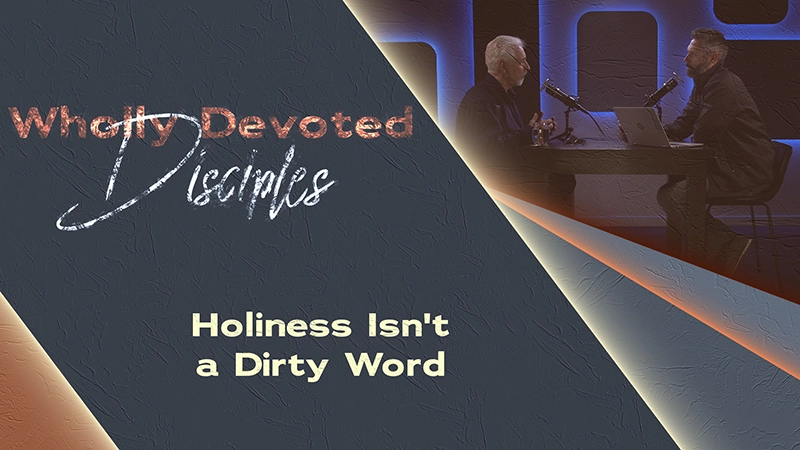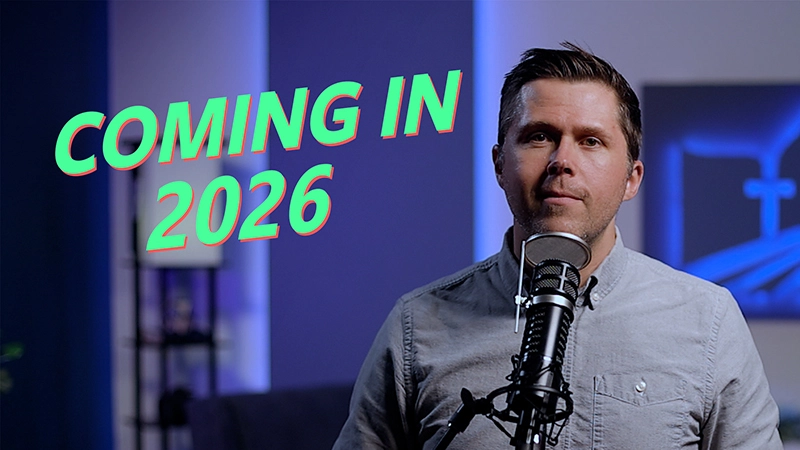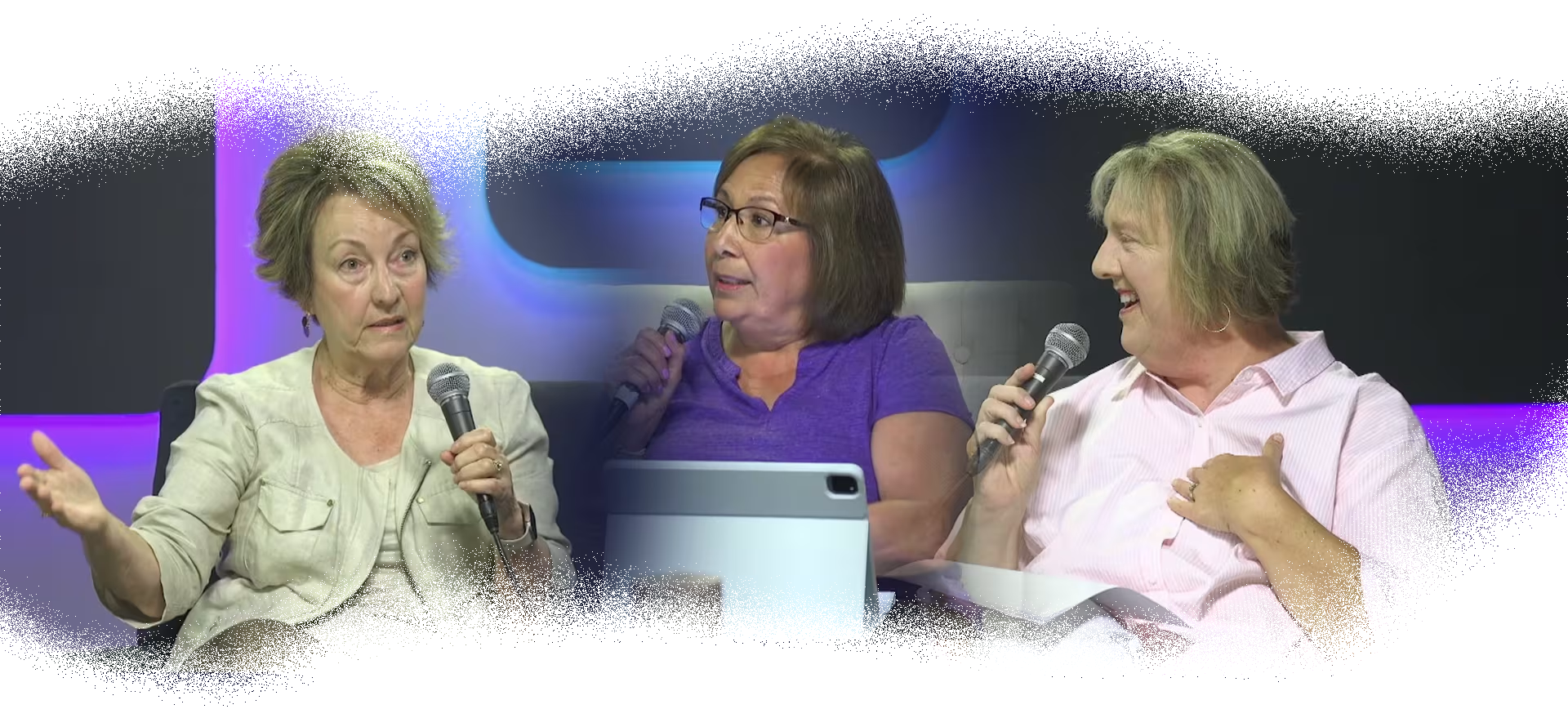
Overcoming Lust Through Prayer
In this segment, biblical counselor Austin Kropf challenges us to pray and not think. He also shares his own story of how this effectual truth came to him while he was in our residential program. (From Podcast #452 - |Victory| A Life Overflowing with Mercy)
Nate: So Austin, one of the things that we realize when we decide to live the life of mercy is that our thinking has to change, because if our mind is full of the world and full of lust, then there's no room for the love of God to be there. And so what we want to do in this interview is help people who have had a past life of worldly thinking, lusting, pride, and criticism to begin to pray instead of think. So, let's start off with this. How have you seen the blessing of praying instead of thinking?
Austin: I’ve found that when I'm praying, the faculties that are required for prayer are the very same ones that I'm engaging in when I'm either lusting or criticizing.
Nate: Okay, explain that.
Austin: It involves my thoughts, my will, and my emotions. Those are the things involved in prayer. My will is being engaged. When I’m deciding to judge a person, or in other words decide to think about this person in some way, there are emotions that come along with that, and thoughts spawn out of those emotions. I’ve found in my personal life, this is the same way prayer works. When I choose to pray and seek the Lord's will for a person, it replaces all the thinking. When I'm choosing to pray, I am engaging my thoughts which eventually results in being really involved emotionally towards people.
Nate: Yeah, that's good. It makes me think of the verse where Paul says, “Don't give your members to unrighteousness, but yield them to God” (Romans 6:13). So, it's basically exactly what you're talking about. You're yielding your will, your mind, your thinking, and your emotions to God for the purpose of righteousness instead of the purpose of sin.
Austin: Yes. Early in my program, my counselor was telling me that I should pray for other people. He was teaching me how to replace thoughts of lust with prayer. And I remember one evening I was on the student center porch doing my homework, just going about my evening, when suddenly I realized there's this pornographic music video playing through my mind. It was very vivid, and as it began to play through my mind, I recalled what my counselor had told me. So I decided I was going to try it. And as I began to pray for this person, something happened that I had never experienced before. There was a dark robe that covered this person in my mind, that took away their lustful appeal. As a result, I began to see her face for the first time. And I saw in her what Jesus saw.
Nate: So that hadn't happened in the video, but in your mind, you saw something cover her body. Wow. And then you saw her face.
Austin: I saw her eyes, and I saw that she was empty. She was crying out for something that she would never find. So, the Lord gave me a sight of what He saw. That emptiness, that comes from seeking after something that would never fill or satisfy her. That touched me in a deep way, and within about two or three minutes I was completely different. I went from being full of lust, to being broken and crying for the need of this soul. That was the most dramatic experience I've had. I've never experienced anything that dramatic since then. But it proved to me that when I yield myself to be obedient to God's will instead of lusting and choose to love, the power of the Holy Spirit is present to really change my heart and give me God's love.
Nate: I love that story. That's an amazing testimony of what God can do when we decide to obey Him. I also am glad that you mentioned that it was the first and last time something like that has happened to you in prayer, because prayer is not always full of drama. Sometimes it's just full of the battle of obedience, where we do what we're called to do, even when we don't feel like it. The battle can be pretty intense, because you are telling yourself, no. How would you say that praying for others and doing mercy in our hearts really puts the nail in the coffin of sinful behaviors and attitudes?
Austin: In my case, it really requires me to make a decisive turn. It requires me to make a commitment and a turn. It’s not just, meeting with a counselor or listening to a powerful sermon, getting hyped about it, then never follow through with it. Here, we are getting down into the dirt of spiritual warfare, where things actually happen inside of me. When I actually choose to pray, I'm saying and committing to the Lord that I’ll change, I'm going to turn to Him, and commit myself to this. And it's not by my power that I can pray, it's in yielding myself to the Lord. It causes me and requires me to make a decisive turn to the Lord, and to yield myself over to His will.
{{blog-b20="/blog-ads-storage"}}
Nate: Yeah, that's good, because in one sense, we want to think maybe our temptation is anger and we’ll say, well, as long as I don't murder anybody, then I'm okay. But man, when you decide, I'm not just going to cut things off at the level of my actions, I'm going to cut things off at the level of my feelings and my thoughts, you realize you have to deny yourself, and it's a hard battle.
So we started this episode talking about how our whole view of people needs to change. I talked with Pastor Ed in an earlier interview about how our burden and our goal in life is no longer to take from people, but to give to people. But sometimes I think we feel that prayer is really impractical, that we should instead get out there and do something! How is prayer from your perspective really a powerful tool for doing mercy?
Austin: Well within the immediate sphere of your influence, whether that's your family, or your friends, I think this principle of praying for people in your heart is the most practical. I think what ends up happening for me is it changes me. It makes me a blessing instead of a curse towards my family and my friends. It changes who you are. When you're in a conversation, or when you're faced with a difficult situation, where before you would have just flown off the handle or whatever, you're actually able to reach out to that person with the love of Christ and the patience of Jesus. And that's going to be a testimony to them. That’s going to encourage them or maybe even convict them if they're not saved. Either way, it's going to change you as a person. In counseling I have seen this over and over again. I'm just at the end of trying to get a guy to see his need, or to bring some sense of poverty, or to try and get him to come to a place where he recognizes his need for the Lord and I'm just at the end with him. I've reasoned with him, I've given him Scriptures, I've given him homework assignments to go over Scripture and nothing's happening. But often I’ve found that it actually will take place after I've prayed. After I've been in the place of prayer for that person.
I recently experienced this, where I had been completely at the end of myself. One morning, I remember I had a difficult and heavy time praying for a person. I just felt so weak. I felt so unable to even voice or formulate the words to pray for this person. But I was giving it the best shot I could, praying and crying out to the Lord for this person. In the next day or so in counseling, I realized, oh wow, he has completely changed! This guy has really gotten the breakthrough that I have been trying to give him, and I think it was through that prayer.
Nate: That's awesome. I love what you said on both those accounts, because on the one hand, you're trusting God to work in the secret place of that person's heart. But on the other hand, your prayer is changing you so that when you go to be in those situations with people, it's not just you in the flesh, it's you in the spirit and that's really good stuff. I hope people are paying attention, because this is so critical. It's been a real blessing for me to be here at Pure Life, because prayer is so central to our ministry. When any of us are struggling we can grab a brother and ask for prayer, or when there's a need people will get together and pray, and we meet as a staff twice a week to pray for ministry needs. It definitely sets the tone for our culture here. What benefit do you see it having for staff or for students having a culture of prayer?
Austin: The first thing that comes to my mind is the Kingdom principle that Jesus gives us somewhere in Matthew, “Seek first the kingdom of God.” I see that as such a need for us as people, as human beings, because we automatically gravitate towards the world. Towards pleasing the flesh, and towards living a very weak spiritual kind of life. There's really nothing there that keeps us anchored unless we understand this fact: I'm not at home; I'm in a passing phase, and I'm going somewhere. And the mentality that prayer has established here at Pure Life is that we’re here to fight a battle, not to be comfortable. We’re here to seek the kingdom and to make disciples.
I think this atmosphere keeps me engaged as well, because prayer is also the way that you enjoy the Lord and delight yourself in him. Even though a lot of times, prayer for me hasn't been this great emotional high, there are times, specific times when the Lord breaks through. And I know for a fact that if I wasn’t seeking the Lord, and if we weren’t being intentional by spending time in prayer together, these things would never happen. And the satisfaction inside of me, delighting myself in the Lord helps me to find that delight in him rather than having to go seek it in the world or worldly things. It keeps me centered on the Lord for my satisfaction and pleasure.
Nate: I'm telling you this is just – I'm really being blessed listening to this. You know, whatever we're telling people to forsake that’s so natural to them, whether it’s worldly pleasure, lust, or criticism, all those things are just cheap, easy pleasures. And we're telling people to go out into the wilderness to seek after God. It is true that every so often you'll find an oasis where you will really experience Him, and then that drives you further out into trying to find Him. But if you want to find Him without that hunger, you never will. You’ll just keep drinking out of the same broken cisterns over and over again. I believe you've really given people some inspiration to actually go do this and not just hear about it. Thank you so much for coming in.
Austin: You're welcome.
















